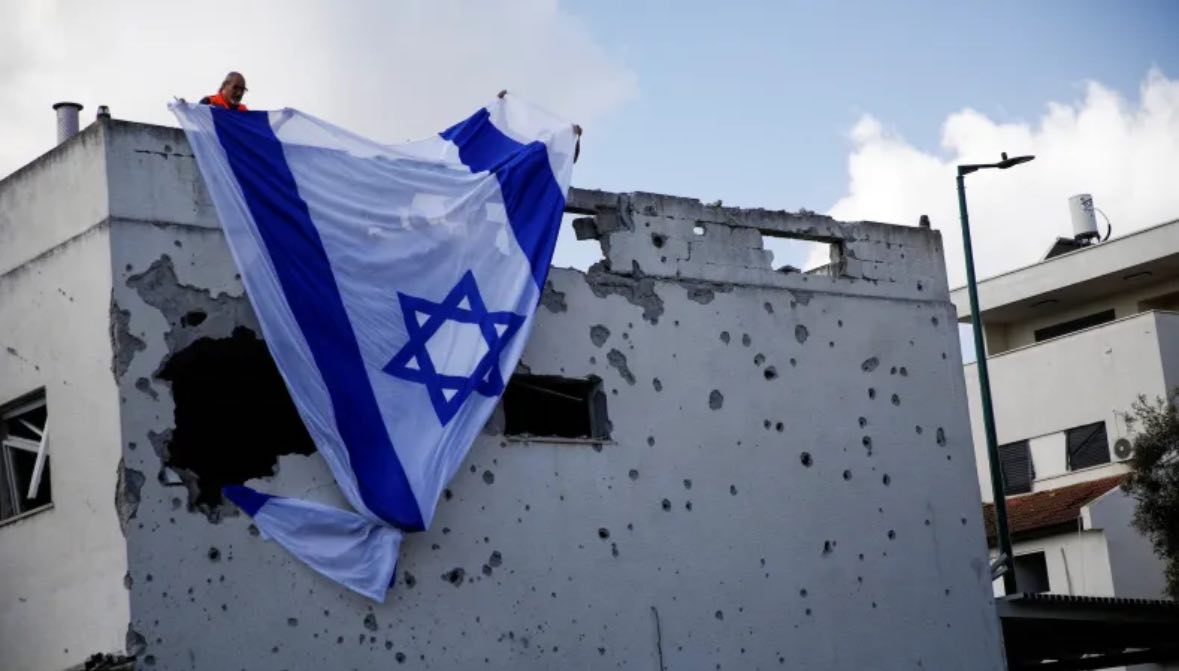What are Iran’s priorities and objectives in Israel?
What are Iran’s priorities and objectives in Israel?
The military confrontation between Iran and Israel intensified when Israel targeted several sites related to Iran’s nuclear program, resulting in the assassination of several high-ranking commanders of the Islamic Republic. This series of attacks officially entered a new phase on the morning of Friday, June 12, when Israel launched extensive operations against targets within Iranian territory.
According to reports, these attacks resulted in the deaths of several Iranian civilians and caused damage to urban infrastructure.
In response to this action, Iran declared its military response by launching missiles towards Israeli-controlled territories.
Despite the activation of Israel’s defense systems, including the famous Iron Dome, these missile attacks managed to bypass some defensive layers, with several missiles hitting residential areas, increasing concerns about escalating the humanitarian crisis.
According to data released by Iran’s Ministry of Health, more than 200 people have lost their lives in Iran since the attacks began on Friday.
On the other side, the reported Israeli casualties exceed 20 deaths, indicating that both countries have entered a more costly phase of military engagement.
According to Israeli officials, those who lost their lives in the Iranian missile attacks were mainly residents of Tel Aviv, Haifa, and several other cities.
This indicates that Iran’s attacks were not only retaliatory but also deliberately targeted densely populated and vital centers in northern and central Israel.
The focus of attacks on Tel Aviv and Haifa—two economic, military, and population hubs of Israel—can carry strategic messages, according to analysts. These include demonstrating Iran’s capability to target the geographical depth of Israel and disrupt the urban order and security of the country.
In fact, the choice of these cities as primary targets is significant not only from a military perspective but also psychologically, as residents in these areas usually experience relatively more security compared to border regions.
This stage of conflict signifies both sides moving beyond the usual level of proxy conflicts to a direct and high-risk confrontation, which could have broader regional and international consequences. One key question in analyzing Iran’s recent attacks on Israel is why Haifa was chosen as one of the main targets—a city that, according to Harinder Mishra, a senior journalist and expert on Israeli affairs based in Jerusalem, holds a very strategic position in Israel’s economic and demographic structure.
Mishra explains Haifa’s importance as follows: Haifa, the third-largest city in Israel, is located in the north and plays a key role in population, economy, and industrial infrastructure.
This city not only hosts offices of major technology companies such as Microsoft, Google, and Intel but also houses Israel’s main oil refinery, a complex whose role in the country’s energy supply is crucial.
Following Iran’s recent missile attacks, a video was released showing plumes of smoke rising from the Haifa oil refinery area. The BBC verified the authenticity of this video by examining its frames through reverse image searches and comparing them with archival photos and satellite images, confirming that the refinery was indeed targeted.
Bazan Oil Refinery Company, the main operator of these facilities, announced that its critical infrastructure, including pipelines and transmission systems, was damaged. Although operations at the refinery continue, some sections have been temporarily shut down.
Haifa’s importance is not limited to industrial infrastructure.
The city also hosts Israel’s main port, which plays a vital role in the country’s imports and exports. Harinder Mishra emphasizes this point, stating that the Port of Haifa is the main hub for Israel’s trade with the world and, historically, was Israel’s first gateway to the outside world.
In 2023, 70% ownership of this port was transferred to the Indian Adani Group, a company owned by Gautam Adani, one of Asia’s wealthiest individuals and a close ally of India’s Prime Minister Narendra Modi. The remaining 30% of shares are held by an Israeli company.
Beyond economic and industrial aspects, Haifa also holds a special place from a social and cultural perspective.
With a population of nearly 400,000, the city is an example of ethnic and religious coexistence, including Muslim and Christian Arabs, and is also home to the Bahá’í World Centre, recognized as a UNESCO World Heritage Site.
Considering all these factors, analysts believe that targeting Haifa by Iran was a calculated move with strategic objectives.
Mishra explains that in choosing its targets, especially Tel Aviv and Haifa, Iran has aimed at the country’s populous and economic centers—cities considered the backbone of Israel’s economy.
He also notes that Jerusalem, despite its high political and demographic importance, has been spared from Iran’s attacks.
The likely reason for this restraint is the presence of holy sites for the three Abrahamic religions in the city, which Iran may have avoided attacking due to international sensitivities.
Mishra concludes that although the Israeli military has announced that most of the fired missiles were intercepted by defense systems, at least ten to twelve missiles hit residential areas, causing significant damage and human casualties.
These developments have revealed new dimensions of the psychological, economic, and military war between the two countries and have increased concerns about the future of this conflict and its impacts on regional and international stability.

